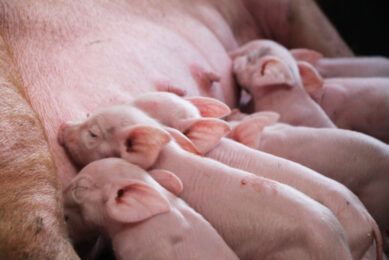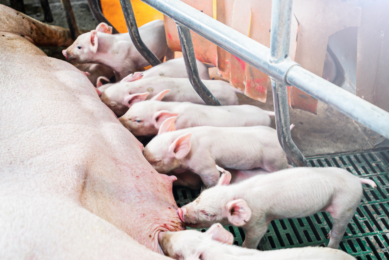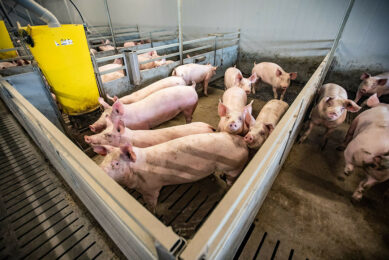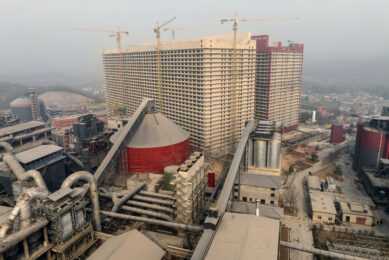Pork processor Danish Crown posts best results ever
The results for the year presented by Danish Crown clearly demonstrate the strong position of the group. The net profit for the year is DKK1.648 billion (€221 million) against DKK1.164 billion (€165 million) last year.
The massive growth is primarily attributable to reduced costs in Denmark and markedly improved results in the foreign companies.
“The excellent results have been achieved through dedicated efforts, and it is thus a pleasure to present them. I’m not afraid to admit that without the very focused approach which has been taken with DC Future, our competitive edge would have been nothing like what it is today, nor would our results,” said Kjeld Johannesen, CEO of Danish Crown, who also emphasises that a large number of factors have impacted the results.
Russia and Asia
Johanessen continued to say, “The record earnings posted by the foreign divisions, in particular, are part of DC Future, and the plan has contributed very significantly to the results. However, sales in the world market have also been very favourable in the course of the year, and our knowledge and access to markets such as Russia and Asia is very important. Moreover, our financing costs have been very low, which is also a contributory factor.”
All in all, a total of DKK 1.316 billion (€177 million) will be paid out to the company’s owners, the highest level of supplementary payments in Danish Crown’s 20-year history. The supplementary payments will translate into DKK0.75/kg (€0.10/kg) for sow producers, DKK0.95 (€0.13) for pork producers and DKK1.25 (€0.17) or cattle producers.
A balance has now been struck between payments into and out of DC members’ accounts. This means that the supplementary payments will be disbursed in full and in cash to all members who have been members for more than eight years.
Financial crisis
Niels Mikkelsen, chairman of Danish Crown’s board of directors, said: ”The financial crisis is by no means over on the farms, and the money is badly needed. There is therefore every reason to celebrate that we are now competitive in terms of the prices being paid out to members. This year, Danish Crown is offering the highest prices to farmers, and this makes a big difference.”
He points out that Danish farmers are still under immense economic pressure, and that competitiveness remains absolutely key.
Mikkelsen continued to say, ”Competitiveness is inextricably linked to the framework conditions under which both primary production and the meat sector operate, and this is where there is a lack of political will. When we launched DC Future, we were promised that politically imposed burdens to the tune of DKK 300 million (€40 million) would be removed, and we are still waiting for this to materialise.”
In addition to the record supplementary payments, there will be a substantial increase in equity. Partly as a result of non-recurring income items and changed accounting policies.
New developments
Johannesen said, ”Exciting developments are taking place in Danish Crown, but these developments require financial solidity and additional capital. It is a responsible decision which will make it possible to pursue the ambitious targets set out in DC2015.”
In recent years, Danish Crown has become ever more international. Today, approximately 35% of employees work in Denmark, while the rest of the workplaces in the group are found abroad.
Johannesen said, ”This is a natural development for a company which exports approximately 90% of its production. Moreover, a continuous reduction in production costs is needed if we are to remain competitive. Today, 84% of our processing activities take place outside Denmark, and this is a precondition for being able to slaughter Danish pigs in Denmark, and thereby maintain a considerable number of workplaces in this country.”
Celebrate
He emphasises that the challenges have not gone away, even though there is every reason to celebrate this year’s results.
Johannesen concluded, ”We still have some way to go when it comes to reducing our payroll costs as part of DC Future, something we must do if we are to remain on a positive track. We cannot rely on low interest rates and favourable market conditions; the company’s production economy must be able to withstand fluctuations, also in the long term.”
Related website:
• Danish Crown











